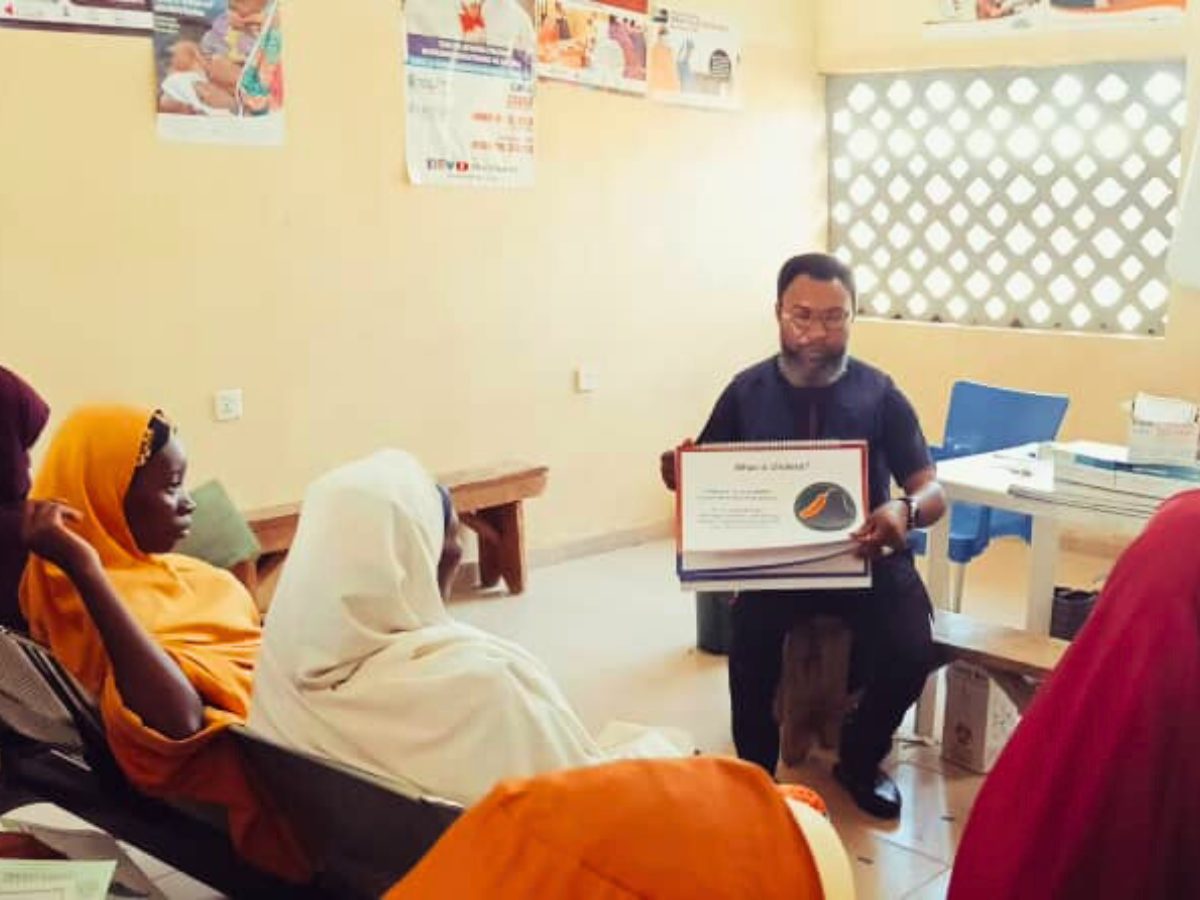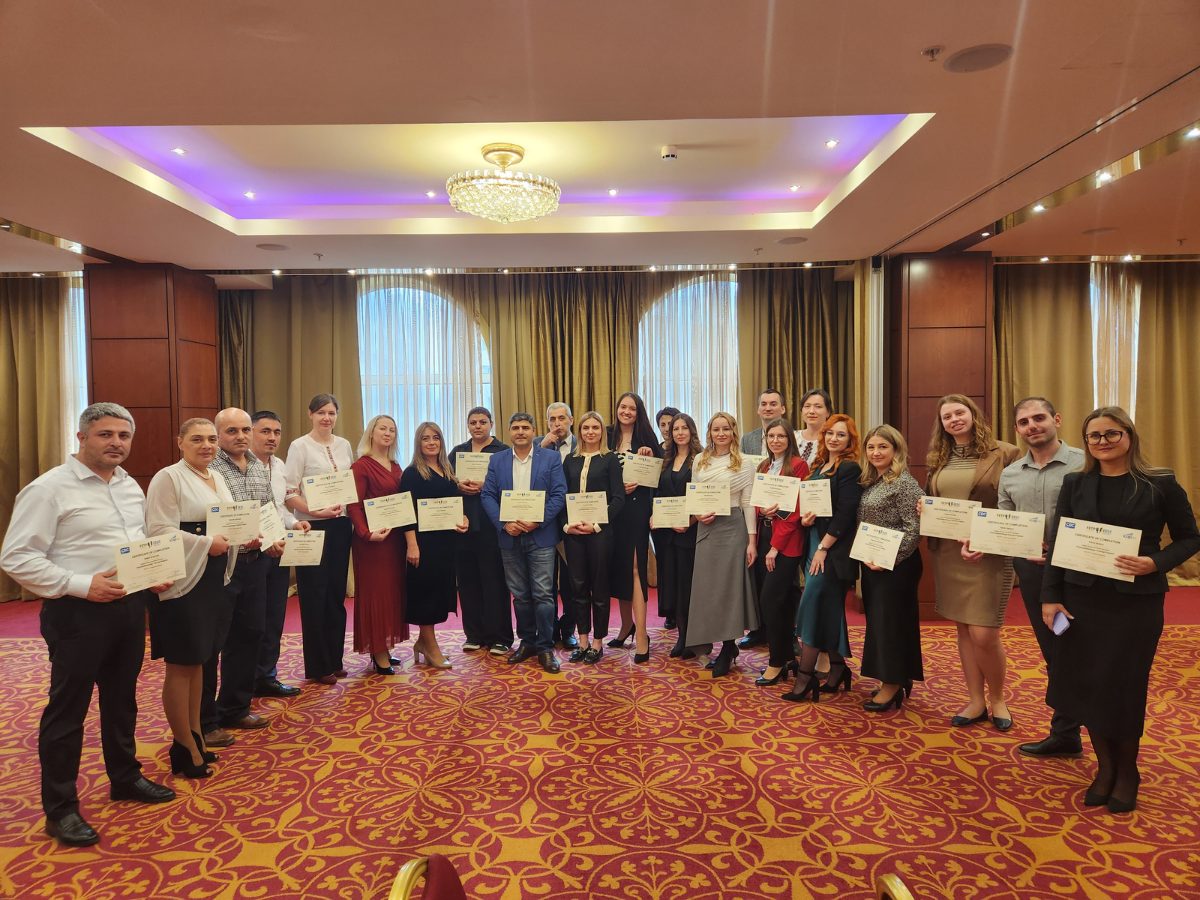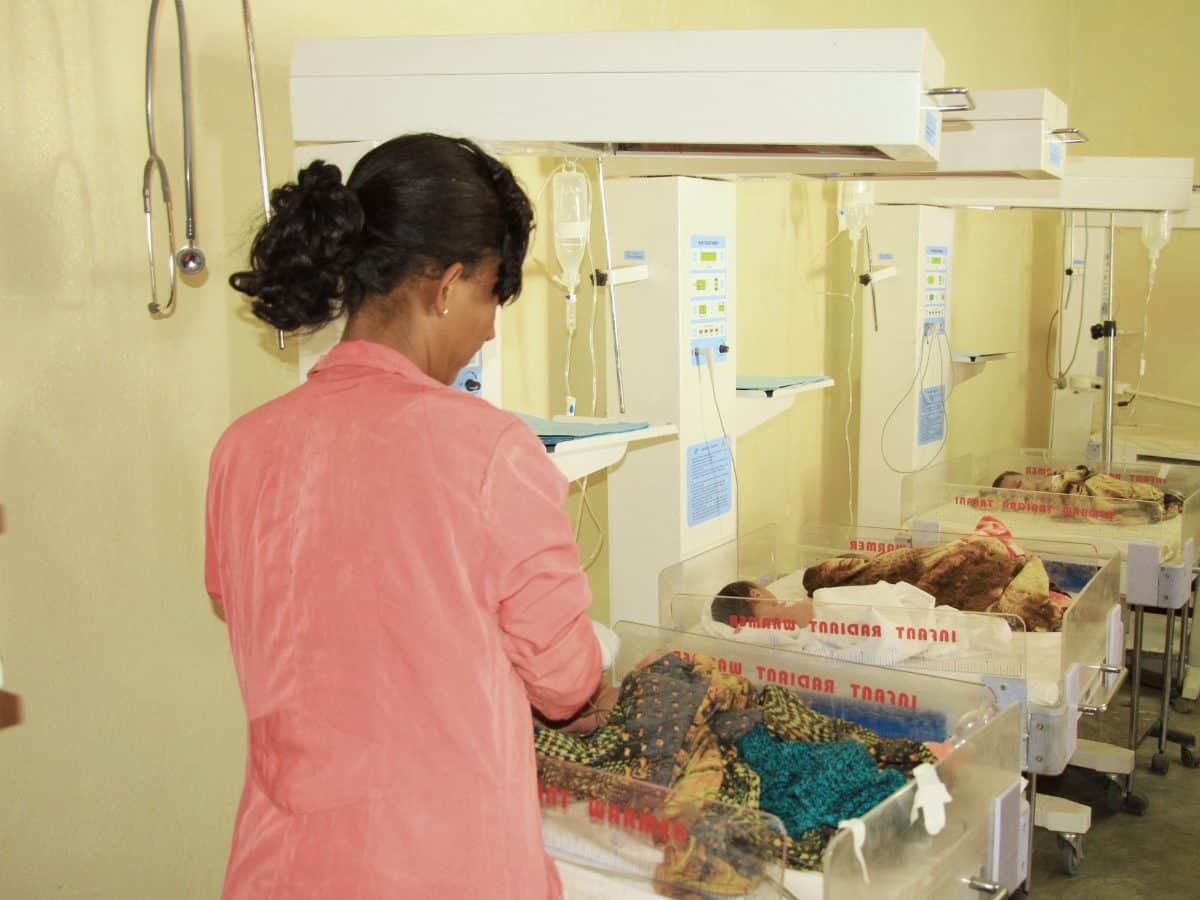At the Bagamoio Health Center, in a bustling neighborhood of Maputo, Mozambique, patients seeking HIV care are lined up hours before their appointments and nurses and counselors see a constant stream of patients throughout the day. While the patient load remains steady, services have undergone a transformation to streamline HIV care. Patients diagnosed with HIV at Bagamoio now receive services designed to accelerate patient initiation of antiretroviral therapy (ART). Bagamoio is one of ten clinics selected to participate in ICAP’s Engage4Health study, an implementation science research initiative, supported by USAID.
Led by ICAP, in partnership with the Center for Collaboration in Health and Mozambique’s Ministry of Health, the Engage4Health study is evaluating the effectiveness of a combination of evidence-based interventions to improve linkage and retention in care. Early ART initiation is one of these interventions. Data suggests that less than half of HIV patients in Mozambique enroll in care within a month of their diagnosis, and of those that enroll in care, less than half are still in care 12 months later. The low rates of linkage and retention in care demonstrate the challenge of ensuring effective, long-term HIV treatment.
At clinics like Bagamoio, the process for patients to begin ART was daunting. Each step—from receiving a positive test result to determining eligibility for treatment to counseling and initiating ART—could take weeks, sometimes months. “The clinical flow was so delayed, and patients with a CD4 count under 350, and others in a critical state, had to wait in order to be seen without being able to initiate ART,” said Quessanie Andriano Manguese, a medical technician at Bagamoio. With prompt initiation of treatment, and viral suppression through adherence to medications, patients would be less likely to transmit HIV.
As part of the Engage4Health study, ICAP is evaluating interventions to reduce the time for eligible, newly-diagnosed HIV patients to begin ART. By starting patients on medication as soon as possible, the hope is that more patients will remain in care long-term, thus maximizing the benefits of ART.
The critical first step was introducing rapid CD4+ testing at the point of HIV testing. This enables clinicians to determine a patient’s need for ART treatment the same day they are diagnosed, enroll them in HIV care, and provide ART counseling. A process that once required up to four trips to the clinic can now be completed in one afternoon.
Because the success of accelerated ART initiation relies on clinic staff to implement the modified clinical flow and adjust how they are accustomed to providing care, ICAP prepared the staff at Bagamoio and through an intensive, pre-launch training for nurses, counselors, physicians, and receptionist. Each step in the new clinical flow was mapped out to help them understand how patients would receive care and clinic staff roles.
Since implementing the clinical changes, study staff report that some HIV patients with a CD4 count below 350 have initiated ART within a week or less of testing positive. The most critical patients with CD4 counts as low as 9 have begun treatment from one to three days after receiving an HIV diagnosis. “With these interventions, the health of our patients has greatly improved,” said Ms. Manguese.








